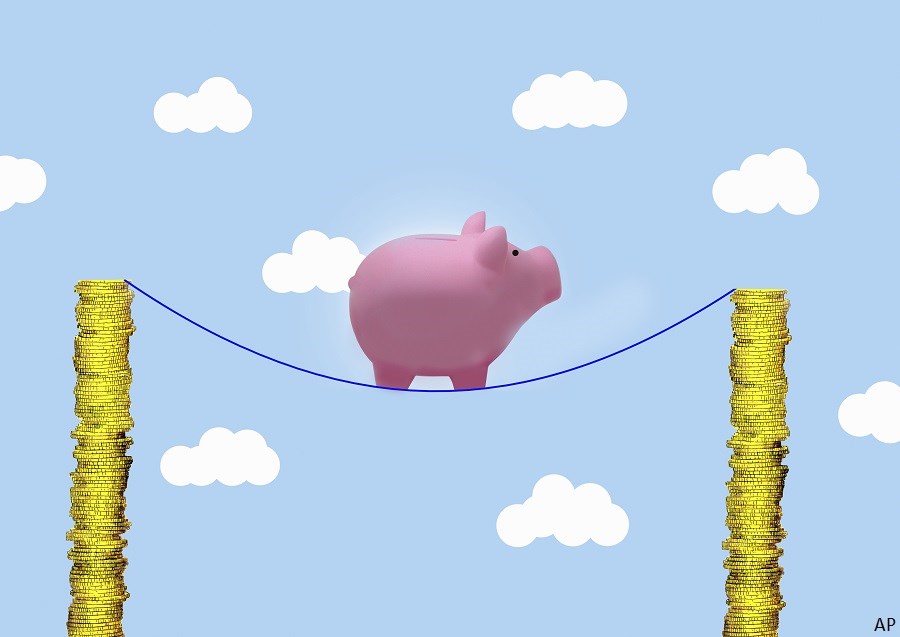
Meet Radhiya. Radhiya is approaching age 65 – the age at which she is eligible for the maximum Canada Pension Plan (CPP) retirement benefit – but she has no intention of calling it quits just yet. She's heard that she should delay claiming the benefit for as long as possible, but wonders if that’s true in her situation. What are her CPP options, and what's the best choice for her?
First: CPP Basics And 2021 Numbers
If you are aged between 18 and 70, and have an annual income of over $3,500 (the “basic exemption”) and below the “YMPE” or “yearly maximum pensionable income” which was $61,600 in 2021, you are required to contribute to the CPP. An employer pays half of the required contribution amount, and the employee pays the other half. If you’re self-employed, you pay both amounts.
Those contributions fund a retirement benefit available as early as age 60. In 2021, the maximum benefit at age 65 is $1,203.75/month, or $14,445 per year. Benefits are scaled down if you start CPP between ages 60 and 65 and scaled up if the benefit is deferred beyond age 65, as late as age 70.
In 2021, employers and employees each make CPP contributions totalling 5.45% of pensionable income, equalling 10.90%. Factoring in the basic exemption, for those earning $61,600 (or greater) the employer and the employee each contribute $3,166 in CPP premiums while a self-employed individual contributes $6,333.
Relevant to Radhiya’s case, once you’re eligible for a CPP pension, if you’re working and not taking the CPP retirement benefit, you’re required to continue to make these contributions – the cost of which is going up in the coming years (5.70% in 2022 and 5.95% thereafter) under reforms to CPP enacted in 2019.
These contributions are required even if you’ve already qualified for the maximum retirement benefit. While the calculation of CPP benefit eligibility is complex, an individual who contributes to the program for 39 years with earnings at or greater than YMPE would be eligible for full CPP benefits beginning at age 65.
An additional, optional benefit delivered through the CPP system is the Post-Retirement Benefit, or PRB. The PRB is an amount added to your monthly CPP payment and available to those between ages 60–70 who are receiving their CPP, working, and continuing to contribute to CPP. The PRB benefit is added to CPP benefits, even if you receive the maximum CPP amount.
Radhiya’s CPP Dilemma
Given the workings of the CPP program, and assuming she continues to work as planned, at age 65 Radhiya has three options:
- Start her CPP benefit and opt to stop contributing to CPP.
- Defer her CPP benefit to receive the “deferral bonus,” but continue to make CPP contributions.
- Start her CPP benefit and begin contributions to the Post-Retirement Benefit.
Here is Radhiya’s dilemma: because she’s already eligible for the maximum monthly CPP retirement benefit at age 65, any additional contributions made to the plan won’t increase her CPP pension. The only way for her to cease contributing is to start the benefit – and thus forgo the opportunity to defer CPP for a higher monthly amount.
A 2020 report from the National Institute on Ageing suggests “Canadians in reasonable health who can afford to wait” will get the most out of CPP by “delaying the start of benefits for as long as possible.” Actuary and report author Bonnie-Jeanne MacDonald says that postponing CPP is “the safest, most inexpensive approach to get secure, worry-free retirement income that lasts for life and keeps up with inflation.”
Radhiya has read this report and wants to know whether she should opt to defer her CPP benefit, although in her case she will be required to continue to make CPP contributions.
CPP Options at Age 65
Radhiya's financial planner, Zak Smith, CA, CPA, CFP®, CLU®, is a founding member of the Financial Planning Association of Canada. He works with her to explore her options and their consequences. In his analysis, Smith assumes Radhiya will continue to earn income at or above the yearly maximum pensionable amount until her age 70, and that the YMPE will increase by 2% per year while CPP benefits will increase by 1.5% per year.
Radhiya’s CPP Claiming Options (Ages 65 to 70)
|
|
Option 1 |
Option 2 |
Option 3 |
|
|
Retire + start CPP benefit |
Keep working + defer CPP benefit |
Keep working, start CPP benefit + contribute to the PRB |
|
CPP Benefit |
Starting age 65 |
Starting age 70 |
Starting age 65 |
|
CPP Contributions |
None |
Mandatory |
Mandatory |
|
CPP Benefit Amount |
$1,203.75/month starting at age 65 |
$1841/month |
$1,203.75/month in CPP starting at age 65, plus $170.23/month in PRB at age 70 |
|
Total Cost of Contributions, ages 65-70 |
_ |
$17,595 / $35,190 |
$17,595 / $35,190 |
|
Breakeven Point (employee / self-employed) |
_ |
Age 82 / 85 |
Age 76 / 85 |
Option 1 is the “baseline” scenario, which has Radhiya starting her CPP benefit when she turns 65.
Compared to Option 1 and using the increasing CPP contribution rates over the next few years on employee and employer contributions, in Option 2 Radhiya is projected to contribute another $17,595 to the CPP program from ages 65 to 70. She will then receive the 42% enhancement of her CPP benefits beginning at age 70.
If Radhiya chooses Option 2, the result is a breakeven point at age 82. That’s the point at which her cumulative enhancement to CPP benefits from her deferred pension, less the additional contributions required to CPP during her additional five years of contributions, exceed the cumulative benefits of Option 1. If she was self-employed, the breakeven age increases to 85, with three extra years of contributions required to overcome the additional costs of the “employer” portion of CPP premiums.
Would she be better off taking her CPP at 65 and contributing to the PRB? In Option 3, she continues to work until 70, begins taking her CPP pension at 65, and contributes to the PRB. In this case, she makes the same $17,595 in contributions ($35,190 for self-employed) from ages 65 to 70 as in Option 2, but because she’s started her CPP benefit those contributions are to the PRB program.
As a result, in Option 3 Radhiya receives incremental annual increases to her combined CPP and PRB benefits which total an additional $170.23 per month ($2,042.72 per year) by age 70, and those additional benefits continue, with inflation increases, for the remainder of her life. In this case, the breakeven age where these additional PRB benefits, less additional contributions, exceed Option 1 benefits is age 76 for an employee and age 85 if she were self-employed.
For 65+ High Earners, Deferring CPP Can Prove Costly
With this analysis complete, Radhiya decides to pursue Option 3 – starting CPP and directing future CPP contributions to the PRB.
“Many individuals may be surprised to learn that for Canadians who plan to continue to work in their later years, deferring CPP while continuing to work could be considered the least advantageous option, while taking your CPP pension and contributing to the PRB may provide the greatest benefit over the long run,” Smith says.
“But that finding aside,” he adds, “I suspect that most will find it unfair that an individual who defers their CPP pension to age 70 while continuing to work until that age must pay an additional $17,500 to $35,000 into the CPP program to receive the same monthly benefits as someone who decides to retire at 65 and defer their CPP pension to age 70.”
Just as the benefits of delaying CPP may be poorly understood, Smith says, the punitive consequences for those who choose to extend their working careers past the 39-year full contribution time horizon also deserve attention. “Inasmuch as the current system was designed to provide the maximum benefit at age 65, it has apparently also been designed to encourage retirement at age 65 for those who have achieved the maximum benefit. This seems counterintuitive in an aging society, where there may be society-wide benefits to keeping individuals with valuable skillsets in the workforce to help mentor and transition jobs to their successors.”




















